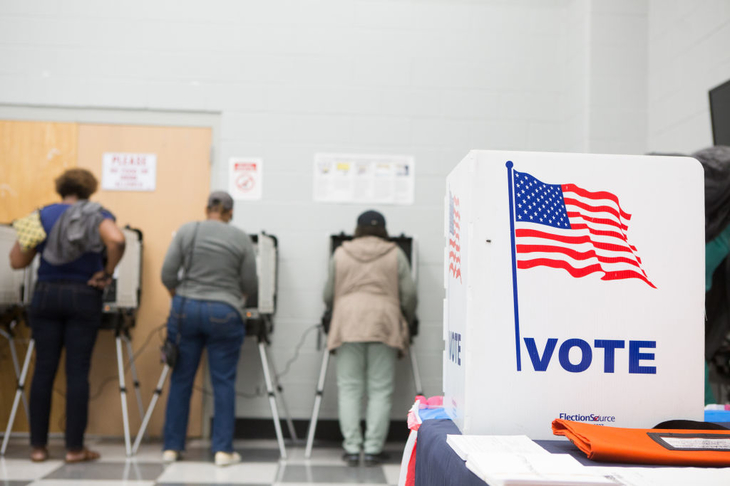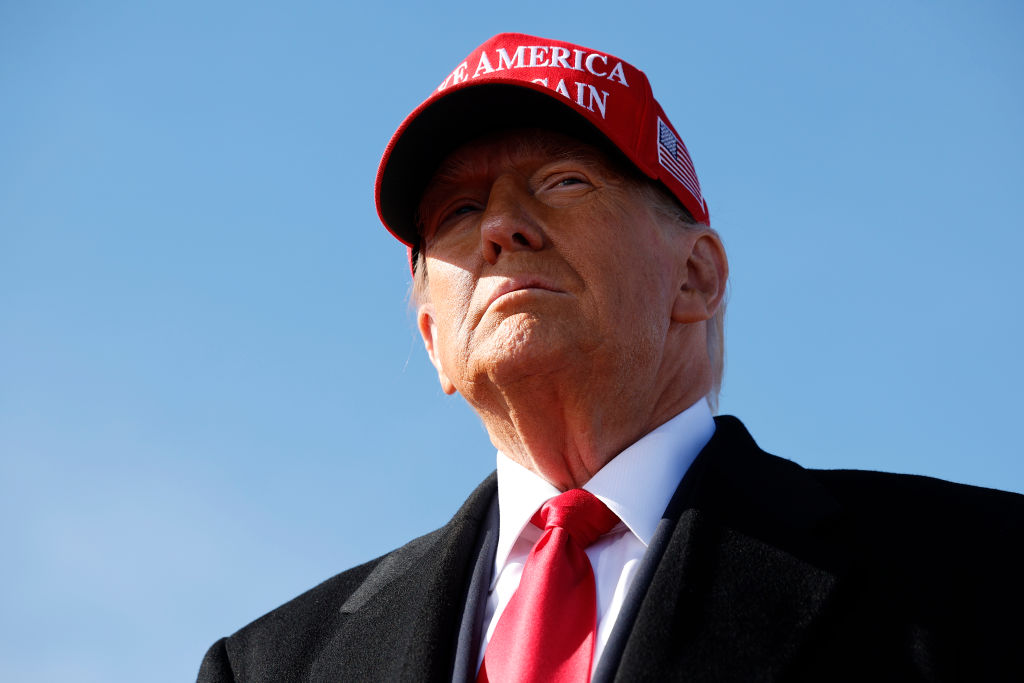When Barack Obama visits Atlanta on Friday, followed by Donald Trump in Macon on Sunday, the transformation of Peach State politics will be complete. Not too long ago, candidates here in Georgia stuck to local issues, particularly if they were Democrats burdened by the national, more radical version of their party. No longer.
Georgia’s most competitive gubernatorial election in years has been thoroughly informed and powered by national politics. All public polls suggest a narrow margin when the votes are counted next Tuesday, and perhaps a runoff, with much depending on the showing by Libertarian candidate Ted Metz. Privately, the signals from both camps indicate momentum is swinging toward the Republican, Brian Kemp. Still, GOP loyalists seem more optimistic than confident.
Rather than try to predict the outcome, let’s consider what this nationalisation means for future elections, in Georgia and beyond.
First, it almost certainly means Georgia will be in play in 2020. President Trump remains more popular here than he is nationally. But he has galvanized both Republicans and Democrats in this year’s contest. The ‘resistance’ to Trump gave the Democratic candidate, Stacey Abrams, a higher floor from which to work. It also gave her a strategy: in the past, Georgia Democrats have tried to change voters’ minds or count on new voters to show up at the polls. In this race, Abrams has sought to convince voters who tend to show up only for presidential elections that they should turn out this time as well, even though Trump isn’t on the ballot.
Any doubts about whether national Democrats view Georgia as truly winnable in 2020, instead of simply paying lip service to the idea as in the past, can be dismissed by the roster of White House aspirants who have shown up to campaign for Abrams. There’s the quartet of hopefuls from the Senate: Cory Booker, Kirsten Gillibrand, Kamala Harris and Elizabeth Warren. There’s the past vice president, Joe Biden. Even Oprah Winfrey is getting in on the action with a last-minute visit.
Second, it suggests the tactics we’ve seen nationally since Trump’s election are only going to intensify. Abrams would be the nation’s first black, female governor, and this is at the heart of her appeal. She has made a habit of recounting the time she, as a teenager, was given a hard time at the gate to the governor’s mansion when she arrived for a reception honoring high-school valedictorians from around the state. (She was eventually let in, and her account has been challenged by members of then-Gov. Zell Miller’s staff.)
Identity politics, expressly championed by Sens. Harris and Warren, clearly is not going away.
That’s not the only carryover from national politics we’ve seen in Georgia. Brian Kemp has served the past eight years as secretary of state, and Democrats have lambasted him for actions they say he has taken to suppress voting. They have taken this line of argument so far as to risk suppressing some of their own voters. Activists fanned fears that some 50,000 voters with ‘pending’ status might be blocked from voting, but pending voters need only show up at their polling place with an ID, like all other Georgians.
If, that is, they are actually eligible to vote. A review by Kemp’s office found the vast majority of the pending applications represented duplicate registrations, applicants whose Social Security numbers didn’t match their names or birthdates, or applicants whose citizenship couldn’t be verified. Other flagged registrations had smaller discrepancies such as different name spellings, or were for people, one of Kemp’s own daughters among them, who have not yet turned 18 but will before the election.
There was also a preposterous claim by the state Democratic Party that Kemp had somehow kept more than 4,500 voters in heavily Democratic DeKalb County from receiving the absentee ballots they’d requested. In fact, the county elections office handles such matters, not the secretary of state, and DeKalb elections officials have repeatedly denied receiving or losing the ballot requests in question.
All of this may be less about winning the election than setting the stage for branding a Kemp victory as illegitimate –– just as Democrats have done with Trump. There’s no Electoral College in play, but Kemp would have to win by several percentage points to quash claims his margin of victory was exceeded by the number of allegedly suppressed Abrams voters.
If that happens, a state that has attracted billions of dollars in corporate investment for its political stability and business-friendly environment could suddenly look like more of a risk. That’s one more way Georgia may be following a national trend, and not for the better.
Kyle Wingfield is President and CEO of the Georgia Public Policy Foundation.

























